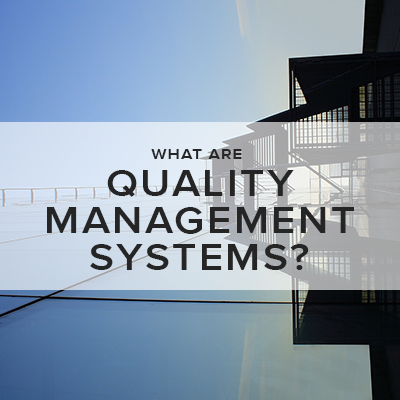What is Quality Management in Business?
 Quality in general and Quality Management can have many meanings depending on the person or organization that is defining it and what is being referenced in relation to quality. The American Society for Quality interprets quality as a subjective concept that each person has their own interpretation of what it means to them (Russell & Taylor, 2017). In other words, every person has their own perspective on what quality means to them. A technical perspective of quality defines quality to have two meanings. The first interpretation of quality examines measurable characteristics of a product or service and how those features can satisfy specifications, and typically can be defined using mathematics (Hoyer & Hoyer, 2001). The second interpretation of quality is measured by how a product or service satisfies the expectations of the customer using the product or service. Quality management primarily focuses on meeting the expectations and needs of customers. Being successful in meeting and exceeding quality expectations often requires a full and comprehensive commitment across an organization. All aspects of an organization from the executives to employees in the company need to be dedicated to effectively improve quality. Effective quality management and improvement involves employees feeling empowered to make quality suggestions and improvements and systematic processes to gather employees’ input. Methodologies such as Six Sigma provide project-oriented business tools and guidance to improve processes (Six Sigma, 2019). Further analysis in the Six Sigma case study will review the system steps, mathematics, and how it relates to managing quality in a company and personal lives.
Quality in general and Quality Management can have many meanings depending on the person or organization that is defining it and what is being referenced in relation to quality. The American Society for Quality interprets quality as a subjective concept that each person has their own interpretation of what it means to them (Russell & Taylor, 2017). In other words, every person has their own perspective on what quality means to them. A technical perspective of quality defines quality to have two meanings. The first interpretation of quality examines measurable characteristics of a product or service and how those features can satisfy specifications, and typically can be defined using mathematics (Hoyer & Hoyer, 2001). The second interpretation of quality is measured by how a product or service satisfies the expectations of the customer using the product or service. Quality management primarily focuses on meeting the expectations and needs of customers. Being successful in meeting and exceeding quality expectations often requires a full and comprehensive commitment across an organization. All aspects of an organization from the executives to employees in the company need to be dedicated to effectively improve quality. Effective quality management and improvement involves employees feeling empowered to make quality suggestions and improvements and systematic processes to gather employees’ input. Methodologies such as Six Sigma provide project-oriented business tools and guidance to improve processes (Six Sigma, 2019). Further analysis in the Six Sigma case study will review the system steps, mathematics, and how it relates to managing quality in a company and personal lives.
The concept of lean systems in business are primarily focused on making a business process more efficient. Lean is sometimes referred to as lean production or manufacturing and is a systematic approach from reducing muda. Muda is anything that is above the minimum amount required in production factors that are not essential to operations or value adding to the product or service being delivered (Russell & Taylor, 2017). Thus, muda refers to anything that is nonessential in a process, such as, an extra step in production that does not add value. There are various approaches and strategies that contribute to the success of a lean system. Kaizen is one strategy that involves all levels of an organization to work together to make continuous improvements and incremental changes to specific aspects within the company (Lean Production, 2019). Further interpretation and the practical uses of Kaizen will be examined in the case study on lean systems.
Many of the quality systems companies utilize today are based on the foundation of Dr. Edward Deming’s research. Deming was very influential in shaping the first systems for quality management. Deming’s studies suggested that the consumer and fitness of use should be the focus of the final product or service (Russell & Taylor, 2017). Dr. Deming thought that companies should place a high consideration on how customers will use the products they produced. He initially introduced statistical quality control to Japanese manufacturing organizations, which subsequently inspired a global movement to monitor and improve quality (American Society for Quality, 2019a). Deming’s research and teachings had proved to be effective and increase quality overall. Many other companies wanted to duplicate similar results in their companies by improving quality in the hopes of increasing profits. The American Society for Quality (2019a) credits his teachings of the fourteen points of management for being the basis of almost all modern versions of quality management systems. Today many businesses and individuals utilize quality and lean systems all thanks to Deming’s research. The following case analyses will further examine aspects of the quality management system of Six Sigma, lean management using Kaizen, how Deming’s Research influenced the foundations of quality management in general, and how both systems can be utilized in business processes, as well as, in personal life too.
References
American Society for Quality (2019a). W. Edwards Deming. Retrieved from https://asq.org/about-asq/honorary-members/deming
Hoyer, R. & Hoyer, B. (2001). What is quality? American Society for Quality. Retrieved from http://asq.org/qic/display-item/index.html?item=14959
Lean Production (2019). Kaizen. Retrieved from https://www.leanproduction.com/kaizen.html
Russel, R. & Taylor B. (2017). Operations and supply chain (9th ed.). Danvers, MA: John Wiley & Sons, Inc. Retrieved from https://purdueuniversityglobal.vitalsource.com/#/books/9781119320975/cfi/6/18!/4/2/2/2/2@0:0
Six Sigma (2019). Welcome to 6sigma.us. Six Sigma. Retrieved from https://www.6sigma.us/six-sigma.php


